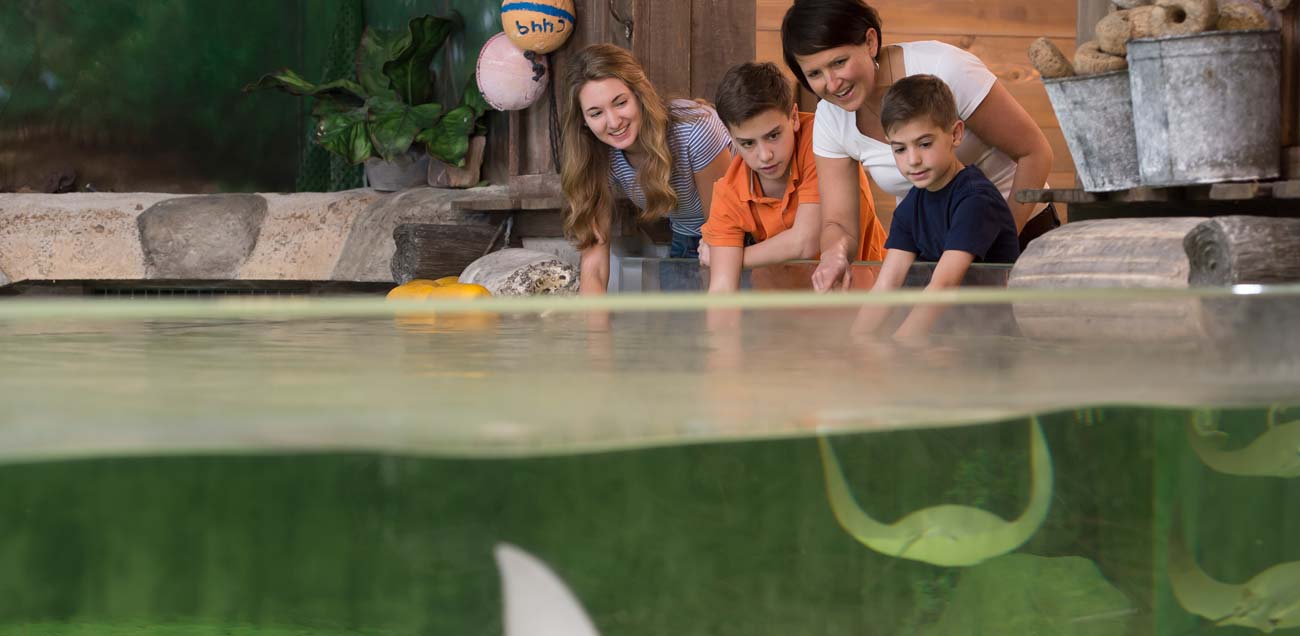Creaky knees. Copious naps. Clicking joints. These are all signs of a long life well lived. As some of the animals who call the Fort Wayne Children’s Zoo home enter their golden years, the care provided by their Zoo Keepers starts to look a little different. At the Zoo, it’s our goal to provide animals with the best care possible, so they can continue to be ambassadors for their wild cousins in wild places.
Tengku the Sumatran Orangutan
At 38 years old, Tengku the Sumatran orangutan spends his days swinging from the trees and connecting with guests as they move through Orangutan Valley. As Tengku ages, the care provided changes alongside him. Adult male orangutans are often at risk for heart disease, something we have monitored with Tengku for many years now. He participates voluntarily in blood draws and ultrasounds, which allow us to look at his muscle and organ functions, as well as blood flow. In 2021, the Fort Wayne Children’s Zoo staff worked together with the Great Ape Heart Project to give Tengku an Implantable Loop Recorder (ILR) device. With this tool, over the last 3 years since the implant, the Zoo’s Animal Care Team has been able to track Tengku’s cardiac function and download the information for further analysis.
Bo the Reticulated Python
Often for snakes, there are no visible signs indicating their old age but will rather show changes in physical activity. While care for him has not changed much as Bo the reticulated python turns 20 years old, the Zoo’s Animal Care Team closely monitors him to note any shifts in behavior and weight. Bo has slowed down a little bit in his golden years, and he spends a lot of his time resting as opposed to climbing or swimming. To provide him with more resting places, Bo’s Zoo Keepers are working to create an extra basking spot in his space. This addition will give him a place to rest on the ground so he does not have to climb up to the already existing basking spot.
Jasiri and Telodi the Plains Zebras
Being 23 and 21, Jasiri and Telodi have trotted beyond what is an average lifespan (18 years) for a plains zebra. While it is normal for these golden girls to rest more frequently in their old age, Jasiri and Telodi can still be found roaming and grazing on the Veldt alongside the wildebeest. Their Animal Care Team has worked hard to find new medications and supplements to help with joint mobility and overall comfort, in addition to offering regular training sessions for voluntary injections of those medications. As with all the animals in our care, especially those in their golden years, Jasiri and Telodi receive consistent physical exams to check their joints, eyes, hooves, and teeth, all things that may be impacted as they age.

